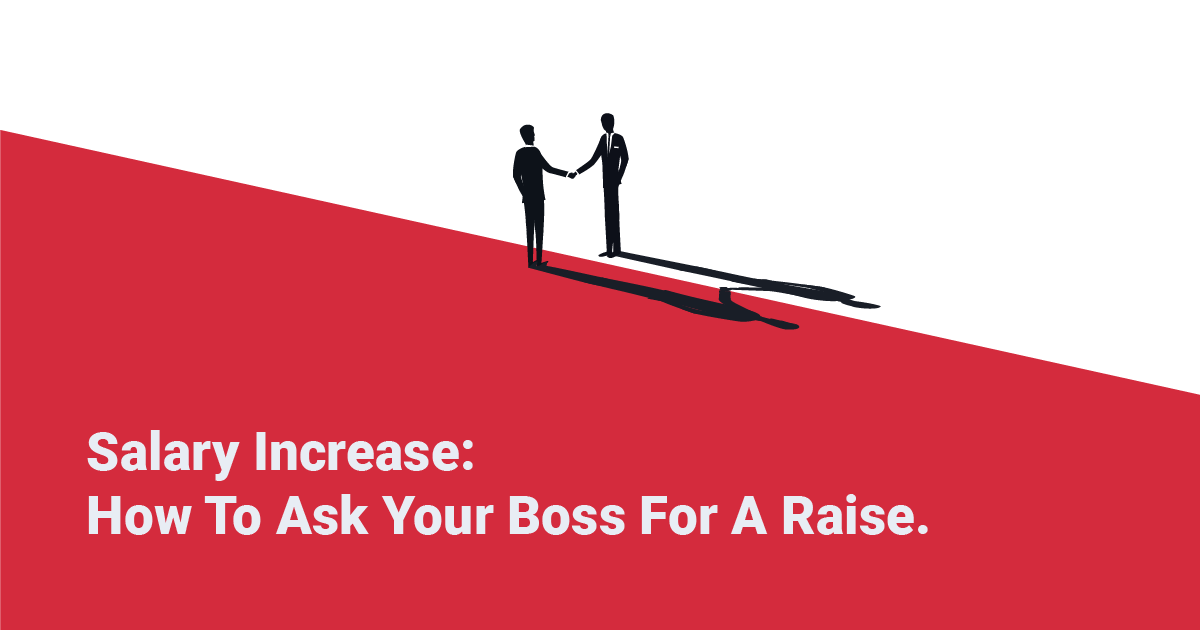When and How You To Request For A Salary Increase.
You have diligently served the organization you are working for, and genuinely feel it’s time your employer notices your hard work and increases your salary. However, he does not seem to think about the issue or bring it up. What do you do?
Well, you do not always have to wait for your employer to suggest a salary increment. Taking the first step to request a pay rise could just be what you need to do. However, when and how you do it not only affects whether you will get that salary increment or not but also by how much your salary could be increased.
1. Do you really deserve this salary increase?:
Before asking for a salary increase, it is important for you to know whether in fact you really deserve it or not. Here are some pointers you could use.
- Have you worked for this organization long enough to deserve a salary increment?
- Is your contribution to the organization substantial to warrant or important that it warranties a pay raise?
- Is your employer’s or organization’s financial status in position to allow for a salary increase?
- What does your organization’s employee handbook really say about salary increment? Is it tied to the evaluation of one’s performance or based on how long one has served the organization?
- Can you clearly and objectively justify to your employer why you actually think you deserve this salary increase? Do you have metrics or proof actually showing your efficient work?
After answering the above questions objectively you should be able to really know if you actually deserve this raise or not. If you think you deserve the raise, here are the steps you should take in approaching your employer about this issue.
- Choose the right time:
As the common saying goes, “timing is everything”. The best time you could request for a pay rise can fall in the periods below:
- When the organization is performing well and has marginal profits; even though you may be performing exceptionally, as long as the company is not performing fairly well, your employer may not be in position to offer you the pay raise you want because the organization’s finances do not allow for it.
- Before your performance appraisal; it is always advisable to request for a salary increase right before your performance appraisal because it gives time for an employer to think about your request and when the appraisal actually happens you are able to further back your request with facts and results from your appraisal.
- Before the organization’s financial year budget is made; find out when the financial year of your organization begins and be sure to put in your request before it is made so that your pay raise is catered for within the budget. It is not advisable to ask for a pay raise in the middle of the financial year as there may not be any miscellaneous finances left to cater for it.
- When the organization usually gives out pay raises; does the organization offer pay raises at the end of the year or beginning of the year. Find out exactly when that is for your organization and ensure you request for it around that time.
- The employer’s mood; whatever time you choose to have the salary conversation with your employer ensure they are in the right mood or state of mind to have the conversation. Do not approach your employer when he has just lost a client or has just had a disagreement with someone. They may not be in the best mood to talk about such a serious issue in that state of mind.
- Prepare a pay-rise pitch:
After determining the best time for you to go ahead and approach your employer, prepare what you will most likely say during your conversation with them before you actually approach them. Preparing for a pay-rise pitch helps you clearly explain why in fact you deserve a pay rise.
The best pay-rise pitch should include important aspects such as:
- How much more would you like to be paid or what percentage increase you would like.
- Your achievements.
- Any staff awards or award documents you could have received.
- Any emails from clients or colleagues commending your hard work.
- Any metrics or statistics showing your great contribution
- Any extra duties or responsibilities you may have taken on in the organization.
- If you salary rate has changed over the years and probably other people in your position are now paid more, have proof of the salary rates according to recent salary surveys.
After coming up with a well organized pay-rise pitch, send it to your employer in a letter before you actually meet them. This will make the meeting much easier and shorter and will also give the employer time to think about your situation objectively.
- Meet the Employer:
After have chosen the right time to meet your employer and have sent them a well written pay-rise pitch the time has now come to have a face to face meeting with your employer about the issue, how do you go about it?
- Remain polite when addressing your issues.
- Do not make any threats or become rude should your request be denied, remain composed.
- Whatever arguments you may make, ensure they are valid and are in line with the pitch you earlier sent expounding more on the points you expressed.
- Listen to the employer without interrupting them and seek to understand them as well.
- Answer any questions they may have for you confidently.
- Focus on the actual reasons related to your performance that warranty you a pay raise. Try not to compare yourself with your colleagues.
In making this request, many fall prey to using wrong statements that often give employers the negative perception of them and simply present them as complaining employees. It is important to stay away from statements such as these:
- My salary has not been increased since last year.
- You are overworking me.
- I am doing the work of five people.
- I have been here for two years now.
- I have done everything I was supposed to do as stipulated by my job description. (Have you gone an extra mile to deserve extra pay?)
- I need a raise because I have so many bills to pay and many other personal issues.
- I want a raise of 100 million. (Do not ask for a ridiculous amount. Be realistic).
- But my other colleagues make much more that I do.
- If you do not give me a raise I am going to quit.
- Be open minded:
It is important for you to be open minded. Despite the fact that you may deserve to get a salary raise, your employer may not be in position to give it to you because of so many other reasons.
If your request is rejected, do not take it too personally. Accept the employer’s decision and ask for any more clarity or areas you need to improve on to be able to deserve the raise the next time.
Always remember there is a next time. Keep working hard and doing the best at your job.
Here is a conversation between an employee and an employer that could further give you guidance on this.
Never be afraid of requesting for a pay raise. If done at the right time and in the right way, you could just get that salary increase you have been hoping for.








